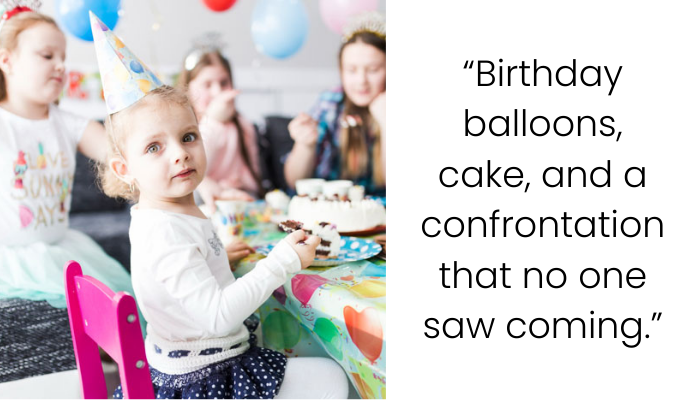AITA for Calling Out a Cousin’s Toxic Behavior at a Kid’s Birthday Party?
OP (31F) found herself in a tricky situation during her 3-year-old’s birthday party. The event was hosted at her partner’s grandmother’s house and was mostly filled with his family — people she’s still getting used to. What was supposed to be a fun, family-centered celebration took a sharp turn when one of her partner’s cousins, “J,” made a nasty, demeaning comment to his own wife. In front of everyone. Loud and unfiltered. Something along the lines of calling her “stupid” and “incompetent” because their child had done something annoying. The room went quiet. The guys laughed. The wife looked down. And no one said a damn thing.
Except OP.
Fed up with the toxic behavior and silence from the rest of the room, she called him out. Calm but firm. She reminded him he has a daughter — and how he treats his wife is what his little girl will think is normal. Her line was clear: apologize or leave. He apologized. But even though the women in the room smiled and seemed grateful, the men flipped the mood. Later that night, OP’s partner said the family was mad at her. Called her “rude” and said it was the wrong time and place. Now she’s wondering: Was I really the AH for speaking up? Or was it about time someone did?
Family gatherings can reveal a lot about the unspoken rules and dynamics that shape how people interact with one another

The author hosted her child’s 3rd birthday at her partner’s grandmother’s house, where most guests were his family
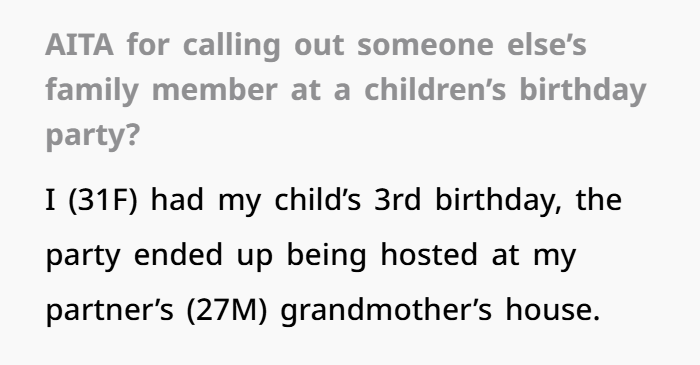
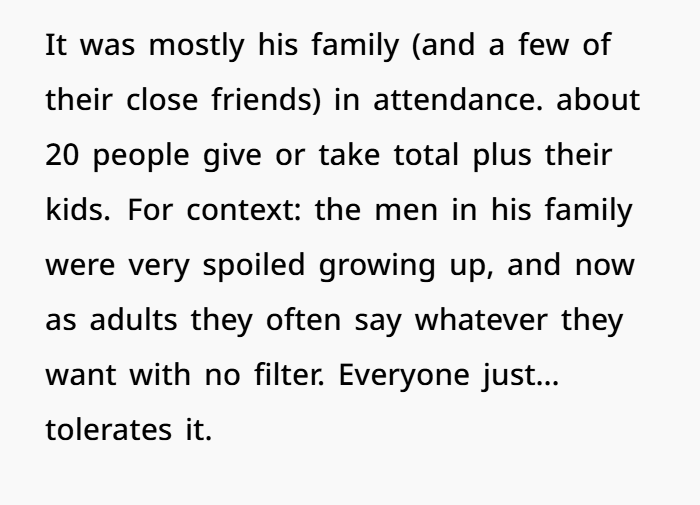
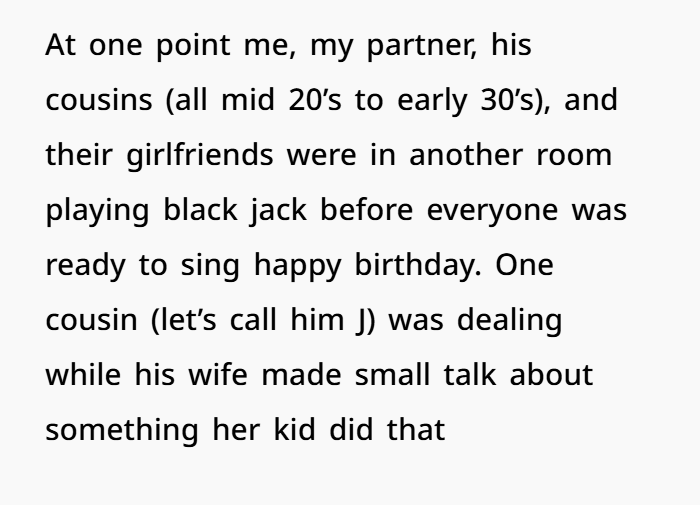
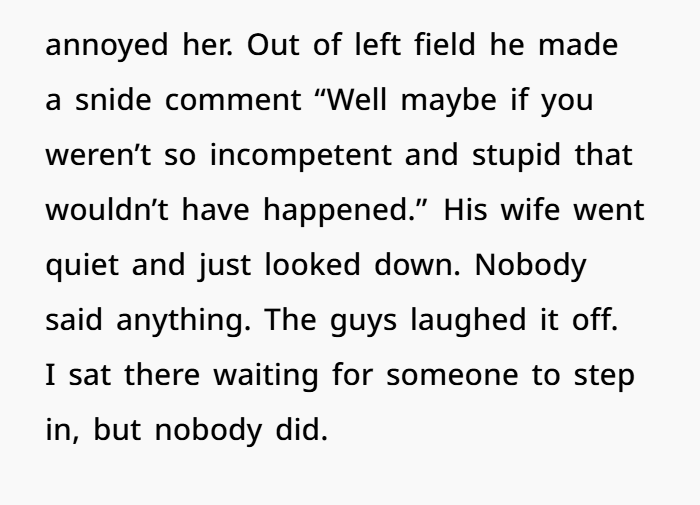
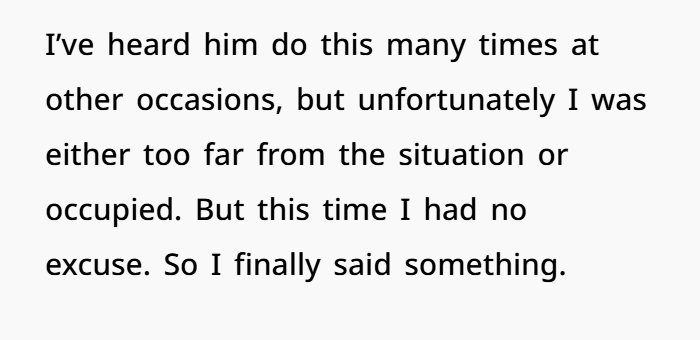
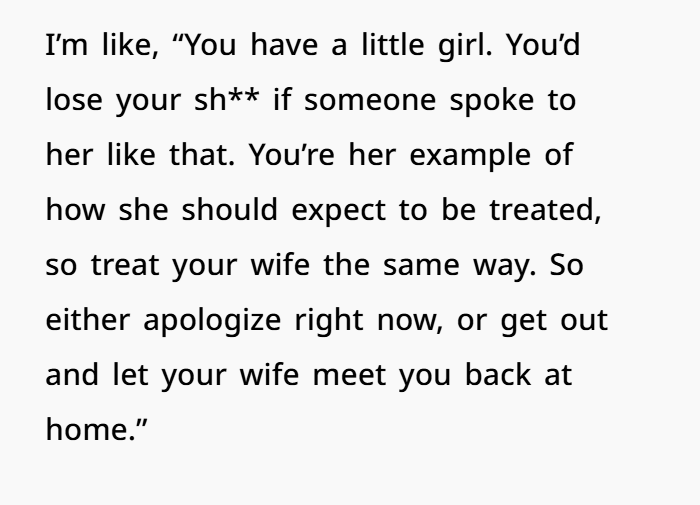
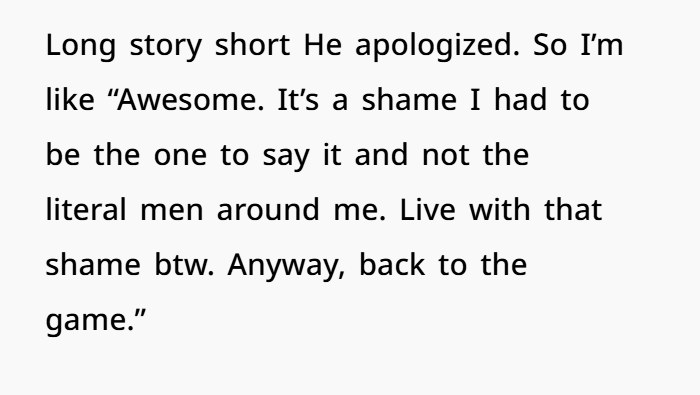
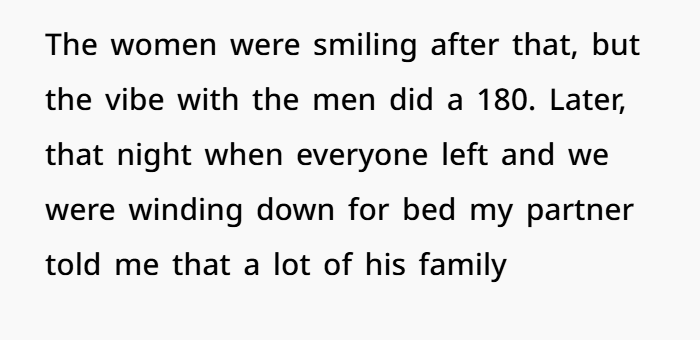
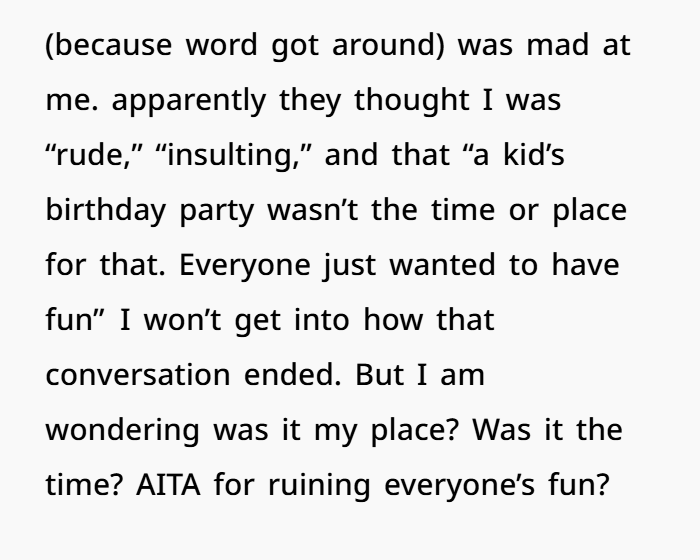
Let’s break this down because honestly? This is the kind of moment that happens a lot more often than people like to admit — especially at family gatherings, where everyone’s playing nice on the surface but drama is simmering just below.

✅ “Wrong Time and Place” — Or Just a Convenient Excuse?
People love to say “This isn’t the right time or place” when they’re uncomfortable. But when is the right time to call out verbal abuse? In private? After it’s already done damage? While the wife is crying at home? Saying this at a child’s birthday might’ve been awkward, sure. But so was the comment itself. The man chose to humiliate his wife in public. So why is everyone upset that the response was also public?
In situations like these, staying silent doesn’t keep the peace — it protects the problem.
🧠 Verbal Abuse: Not Just “Jokes” or “Teasing”
Let’s be very real: Calling your wife “stupid” and “incompetent” in front of others isn’t just bad behavior — it’s verbal abuse. And yes, even when it’s said with a laugh or under the excuse of “just being honest.” According to the National Domestic Violence Hotline, emotional and verbal abuse includes name-calling, demeaning remarks, and public humiliation. It chips away at a person’s self-worth and teaches children that disrespect is normal in relationships.

Even worse? Kids pick up on this stuff fast. Studies from the American Psychological Association show that children exposed to verbal aggression at home are more likely to develop anxiety, depression, and even repeat the behavior in their own relationships. So OP wasn’t just defending the wife — she was making a statement in front of every kid in the house.
📣 Why “Speaking Up” Feels So Uncomfortable
It’s wild how someone can make an awful comment, but the person who calls it out ends up being the “problem.” This is common in families with long-standing patterns of dysfunction. When someone disrupts the unspoken rule of “keep the peace,” they get labeled dramatic, rude, or disrespectful.
It’s what therapists call “homeostasis” in family systems — basically, families tend to find a rhythm (even if it’s toxic), and anyone who rocks the boat is seen as a threat. So when OP said something, she wasn’t just standing up for someone — she was shaking the family dynamic. That’s why the men got mad. It forced them to confront their own silence and complicity.
And yeah, that’s uncomfortable. But it’s necessary.
👶 Kids Are Always Watching (and Learning)
Here’s the kicker: the party was for a 3-year-old. That child — and all the others — may not fully understand the words, but they feel the tension. They see how adults treat each other. When a man mocks his wife in front of a room and no one bats an eye? That becomes the standard.
But when someone calls it out? That becomes a lesson, too.
This is one of those moments where what you do teaches more than what you say. OP might have made some people uncomfortable, sure. But she also modeled something powerful — that respect matters, and silence is not always the right answer.
💬 Was OP Rude? Maybe. But Was She Wrong? No.
Calling someone out isn’t always going to come off pretty. It might sound harsh. It might make people squirm. But if the words “rude” and “disrespectful” are being used more for the woman who stood up, and not the guy who insulted his wife — that tells you everything about the priorities in that room.
Also: It’s wild how often women are expected to be polite while handling situations that are already messed up. If OP had said nothing, people would’ve kept laughing it off. But because she said something — suddenly, it’s a scandal.

🧠 The Psychology Behind the Family’s Backlash
So why did the men turn cold afterward? Here’s the hard truth: OP held up a mirror. And they didn’t like what they saw.
Her line — “Shame on you all for needing me to say it” — probably hit harder than the actual callout. It reminded them that their silence wasn’t neutral. It was passive support. And nobody wants to admit they’re complicit in something ugly.
According to Bystander Effect research, people are less likely to intervene in public situations when others are present — a kind of group paralysis. But that doesn’t make it okay. It just means most people are wired to look away. OP’s choice to speak up went against that instinct.
Netizens applauded the author standing up for the wife of the cousin amidst a seemingly misogynistic family

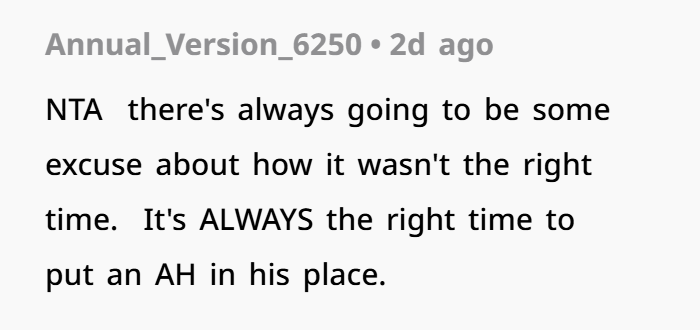
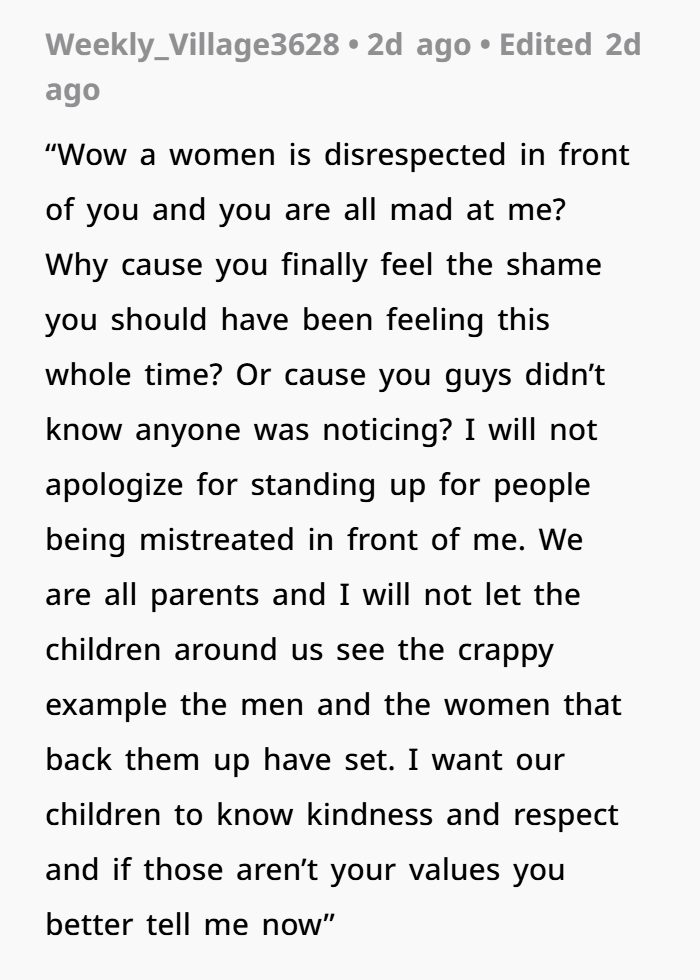
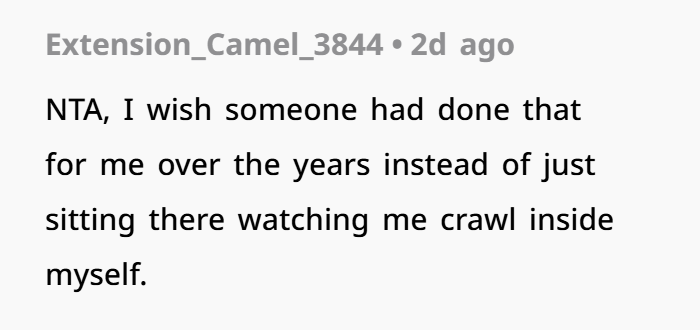
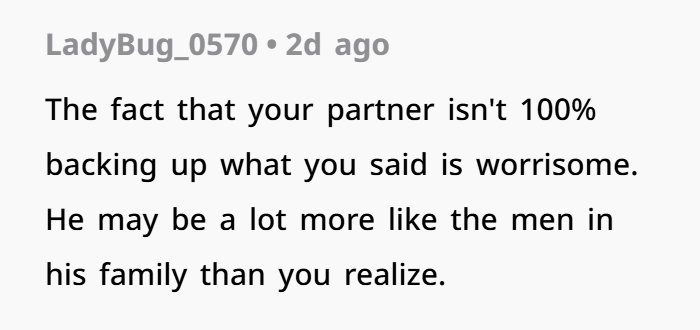
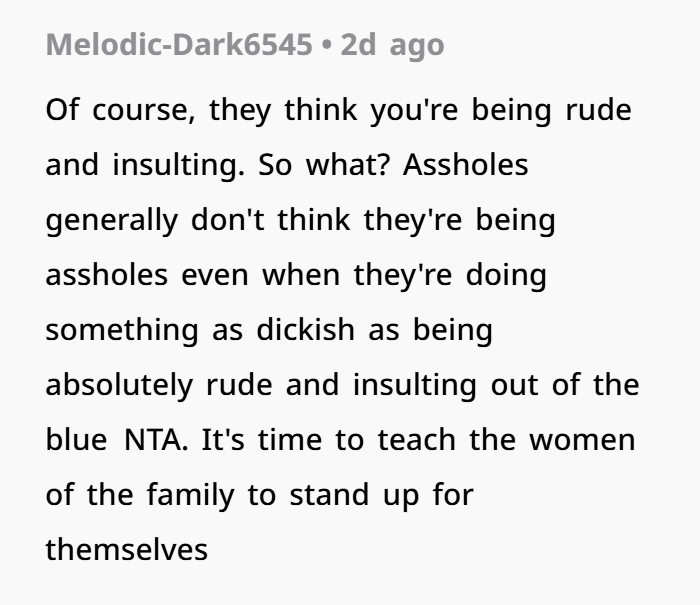
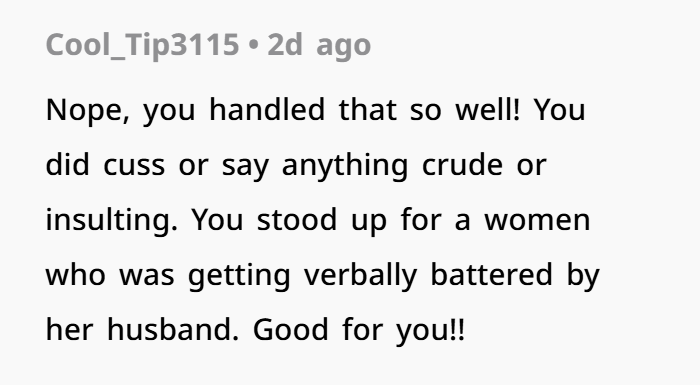
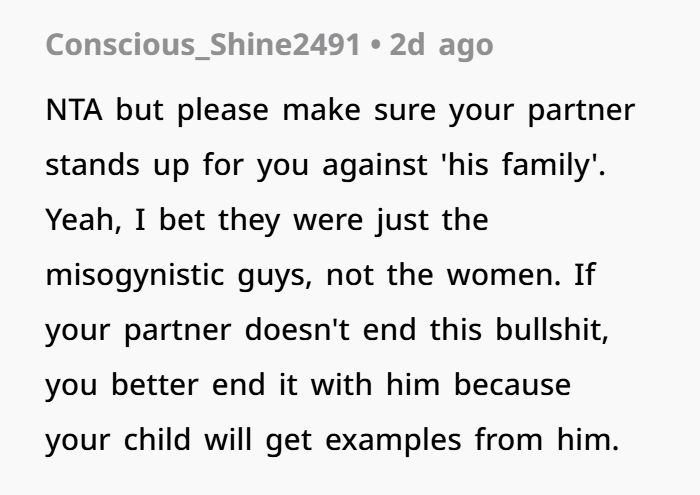
Let’s be honest. There’s no “perfect” way to stop verbal abuse. It’s messy. It makes people uncomfortable. And yes, it might “ruin” a party for a few minutes. But it also sends a message that kindness and respect aren’t optional — even in front of birthday cake.
So no, OP. You’re NTA. You didn’t ruin the party — you just interrupted the toxic pattern that everyone else was content to ignore.
And frankly? That’s something to be proud of.

